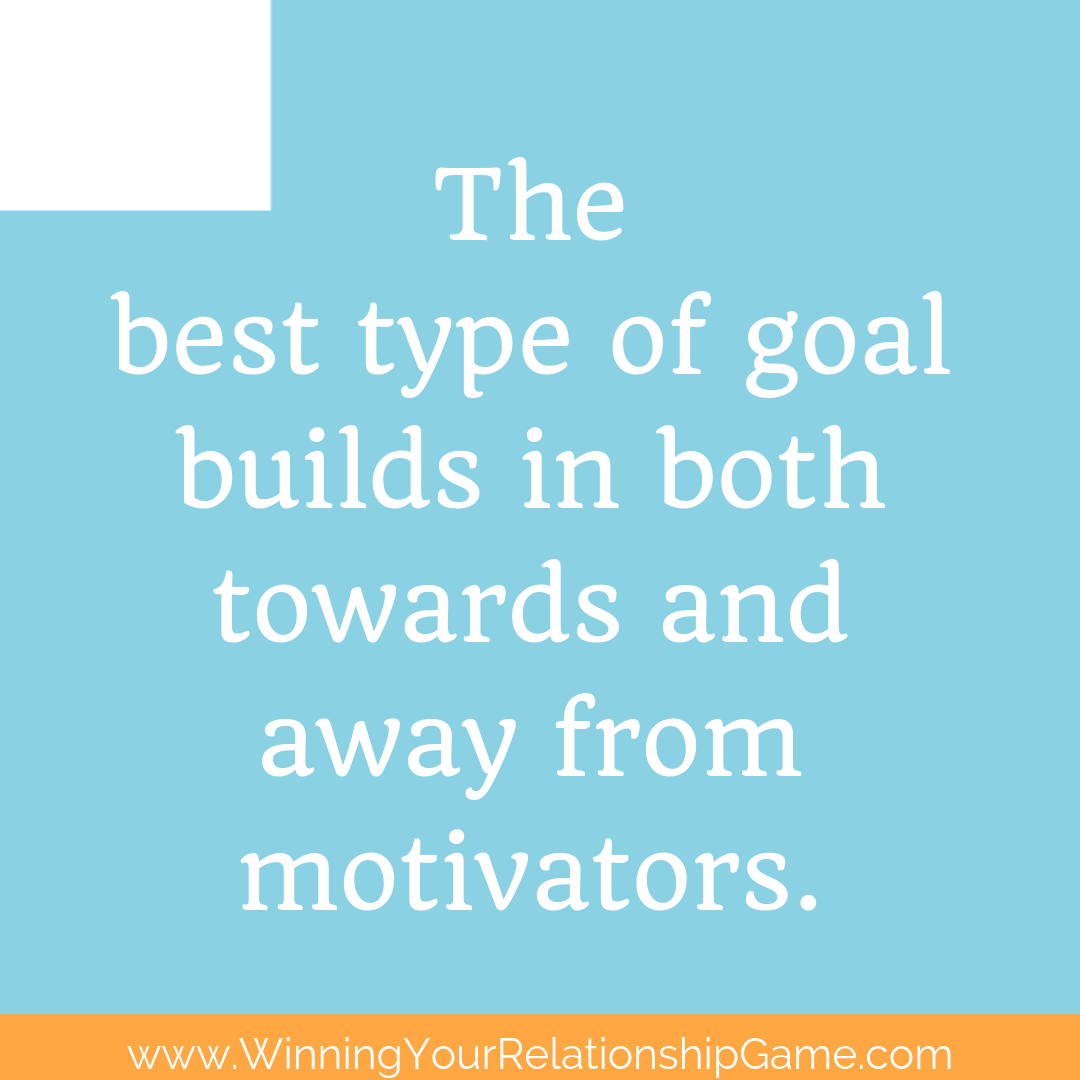here are several criteria to successful behavior changes. First, there has to be a desire to change. Second, there has to be a substitute for the problem activity. Third, a system of accountability ensures lasting change. While it is fairly easy to find an accountability system, it’s even easier to find a substitute activity. The really difficult part of this equation is to develop the desire to change.
How can you develop the desire for change to occur? There are two types of motivation. One is a “towards” motivation. Examples of a toward goal is regaining health or reconnecting in lost relationships. The second type of motivation is “away from” motivation. Examples of away from goals are losing employment or losing my residence. The best type of goal builds in both towards and away from motivators. Another method of building motivation is to increase the discomfort with the present situation. This is often what occurs when an Intervention occurs. Loved ones raise the awareness of the negative aspects of the situation and outline clearly what the boundaries are for the future. Often this involves a withdrawal of support or a suspension of relationship which creates a new level of discomfort and urgency for change to occur. While I am speaking to work with addictions, these techniques can be very useful for any type of behavioral change. If you have struggled with a particular behavior, identify the towards and away from motivations. You can create a motivator to “turn up the volume” in one direction or another. You can do this with yourself, but embedding a system of accountability into it is helpful. For instance, a friend and I are training to run a 5k race. We agreed that every day we are supposed to train and we don’t, we will pay the other person $1. I don’t want to pay her $1, but I really don’t want to have to tell her I didn’t follow through. You can see that even if we aren’t very good at our routine, we won’t likely go broke! You can be sure though, that we eagerly report to each other when we do our workout (and even when we don’t). There is a towards motivation: being prepared to run a 5k. There is an away from motivation: paying the $1. There is a system of accountability: we report our success to each other. The replacement activity in this case is the running which takes the place of other activities in our lives such as watching TV or sleeping in. What ideas can you come up with for establishing your own behavior change? Constantly changing, Allison Sign up for my email list and I’ll share some great relationship tips with you! https://www.winningyourrelationshipgame.com/sign-up-for-4-awesome-videos.html
Comments
Some qualities of relationships which often are present when affairs occur are high conflict, low emotional warmth, neglect of pleasure, and discomfort with emotional closeness by one partner. How can you use this information to strengthen your relationship? Building and reinforcing the qualities indicated above can be a great starting point. Using the embedded worksheet, you can identify areas where attention is needed. The lowest numbers indicated by either partner will direct your focus. For instance, if engagement is low for one partner, it may be helpful to learn some healthier means of addressing conflict. If excitement is low for the other spouse, perhaps they need to take some risks. Next: How do you know what to do about it? Agree on some concrete actions to work on. In our above example of engagement, determine what each partner pictures as “engagement”. Maybe one sees that as taking long walks holding hands and discussing issues. Maybe the other partner sees that as giving each other a kiss good bye every time they part. Everyone gets to have their own definition which means they are all valid!! Here’s the kicker……trade rating scales with each other. After all, the goal is each partner’s ratings will move higher and higher. What can each improve on that will lead to higher relationship satisfaction for their partner? Even small changes can lead to relationship improvements. (You do get credit for effort when you’re working on your relationship.) Sign up HERE for my email list and I’ll share some great relationship tips with you!
A-You have to decide to. In every situation there is something you appreciate or be grateful for. For instance, if it's raining, you can be mesmerized by the drops hitting the puddles or be grateful that the plants will have what they need to grow. Stress hijacks our attention and focuses us on survival. But most situations really aren't that important and we have to recognize that we don't have to allow our thoughts to run away from us, we can control them with some practice. Cognitive Behavioral Therapy tells us events and feelings are separate entities. Our thoughts about events are what lead to our feelings about it. For example, it’s raining. I think, “This sucks! There go my plans for today!” Then I end up feeling disappointed and bad. I can choose to think different thoughts that lead to different feelings. For example, I can think, “This sucks, and I’m disappointed, but maybe I can find something interesting to do inside today. Yeah, I got that new puzzle! I’m going to work on that today!” I’ve got a whole new feeling coming out of the same situation just by altering my thoughts. This can take some practice, but I’ve written lots of other articles addressing how our thoughts, feelings and behaviors impact each other. If you feel that you’re just depressed and can’t succeed in changing your thoughts, find a therapist that practices Cognitive Behavioral Therapy. Best of luck, Allison PS-Give me your email and I'll send you my 4 favorite relationship tips! Click HERE!  There’s a saying that if you don’t care where you’re going any road will take you there. You want to be deliberate about the road you’re travelling. In order to make lasting change, you have to set a goal. Setting a goal will help you Win Your Relationship Game, but there’s some planning to do first. Winning Your Relationship Game has a lot to do with habits and behavior change. Many of the lessons are based in research that’s proven to support positive relationships and behavior change. You aren’t going to rely on will power. Anyone who’s had to try to diet knows that will power is very unreliable. You’re going to set goals that allow you to capitalize on motivation. Your initial goal, I like to call a personal motivation statement. This is where you’d ultimately like to end up. Take just a minute and focus on what change you’d like to see in your relationship. What is it you’re hoping to improve? Now, go back and look at it again. Does it focus on changing something about your partner? You can’t change anyone’s behavior except your own, so if you thought about something your partner needs to change, think again!! This is the beginning of your personal motivation statement. Right now it can be fairly broad. As you go on, it will change, you’ll gain insight and tweak it to fit. Remember, this is the foundation for moving forward so it’s worth some thought. Having a Personal Motivation Statement is good, but to really ramp up your motivation, you have to know why that Personal Motivation Statement is important. You might be able to tell that I like to play games whenever I can. It makes life more fun. To clarify a Personal Motivation Statement I like to use a game called “The Five Whys”. The five whys are actually business concepts used to do what’s called root cause analysis. It’s also a really useful tool to help you dig deeper into your thoughts and feelings. Refer back to your personal motivation statement. You’re going to ask yourself WHY it’s important to you. You’ll get your answer and then you’ll ask again WHY that is important to you. Then you’ll have another answer and you’ll ask WHY that is important? You’ll continue to do this for five cycles. Don’t rush through this. If you are persistent, it will lead to a very clear idea of the value of your personal motivation statement To give an example: My Personal Motivation Statement might be: I want to feel closer to my partner. 1. Why is it important to feel closer to my partner? Because closeness feels good. 2. Why is it important to have the good feeling of being close? Because I feel more secure when I’m feeling close. 3. Why is it important to feel more secure? Because feeling more secure reduces my anxiety about belonging in my relationship. 4. Why is it important to have reduced anxiety about belonging? Because then I can be relaxed and really be myself. 5. Why is it important to feel more relaxed and be myself? Because then I feel have a stable foundation for all the other areas of my life. Just walking through this exercise reveals something deeper about of what is important to me. I know exactly why it’s important for me to be closer to my partner. It’s going to put me on the road of changing the right behaviors creating more closeness with my partner. That’s the basics of setting a Personal Motivation Statement about your relationship. Having a Personal Motivation Statement to focus on is a habit you can start today. It can be revised as needed, but every day, you want that statement front and center in your awareness. I want you to find such value in focusing on that statement so that by this by the time this program is over, you’ll continue to use it to motivate you to your goals. The recap:
Practice time: Take all the time you need to work through this. It should take you a while and it might be frustrating. Don’t rush it. If you have an answer that just doesn’t seem right, sit with it. Trust yourself. We all have a deep inner knowing, so when it’s your truth, you’ll know. If you get stuck, send me an email at [email protected] . I would love to hear from you! In the meantime, sign up for my email list and I’ll share some great relationship tips with you! Sign Up HERE! |
Helping You
|
||||||||||






 RSS Feed
RSS Feed

